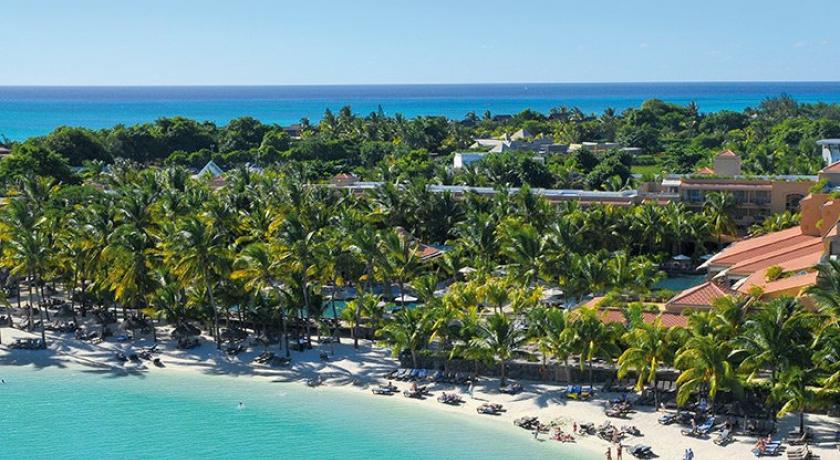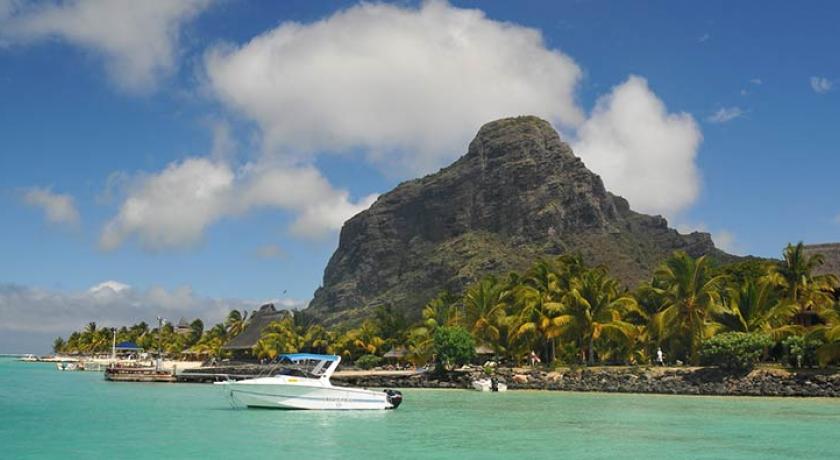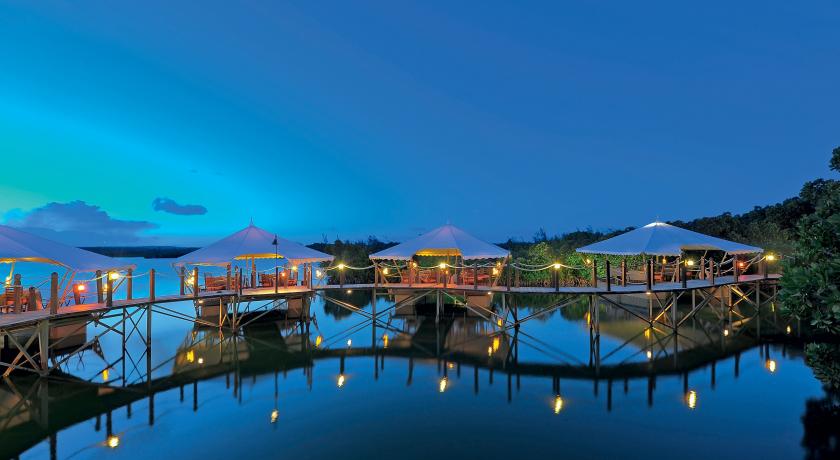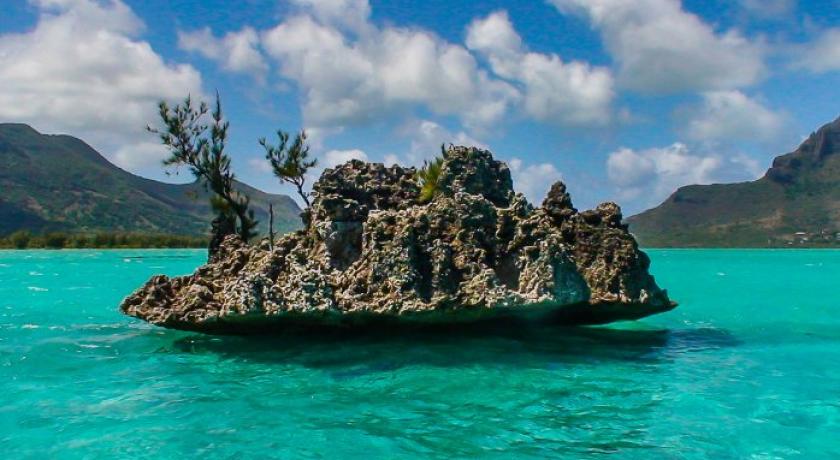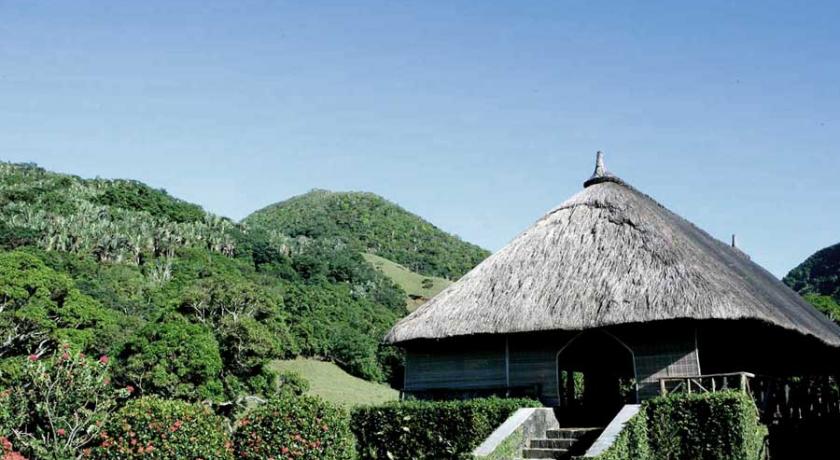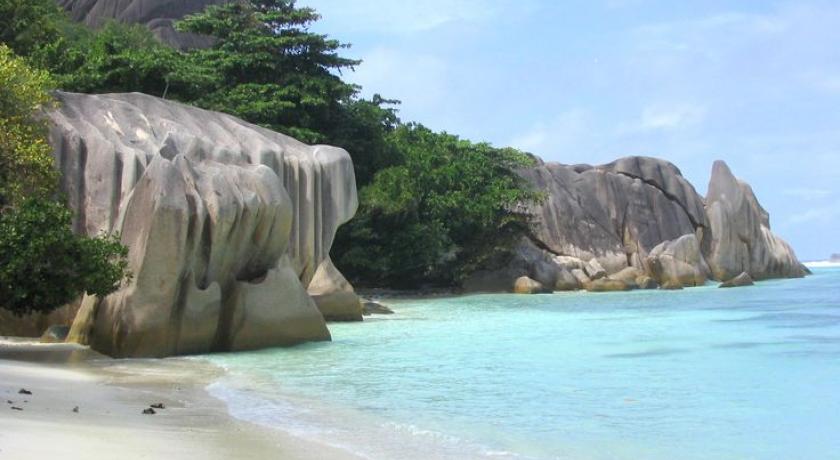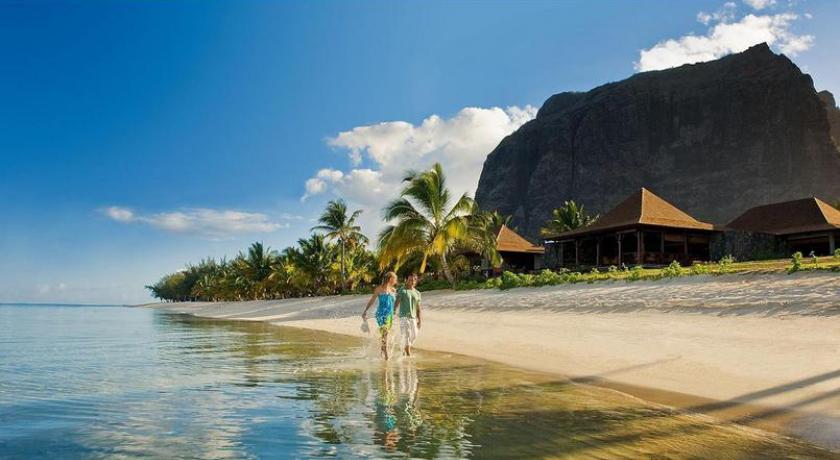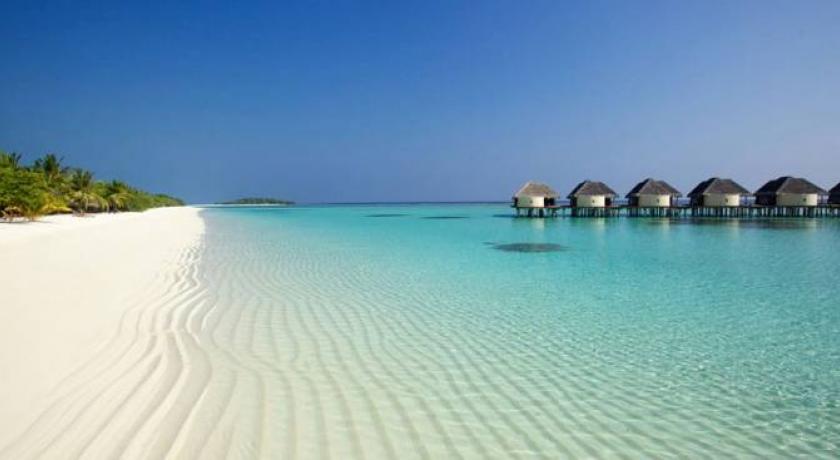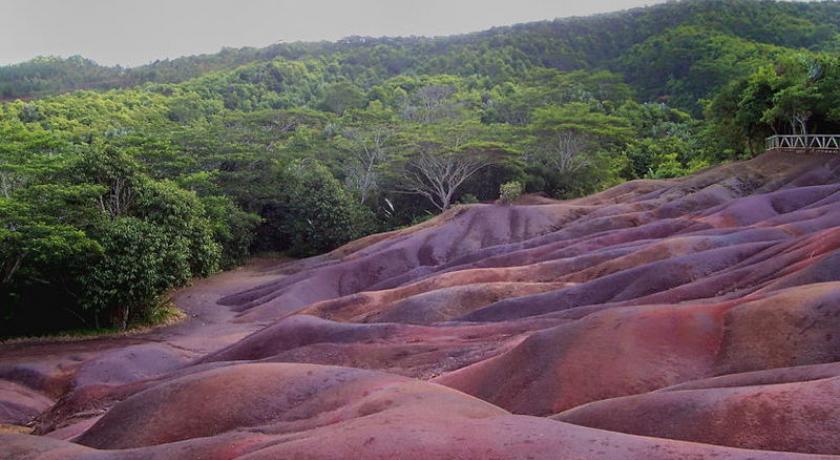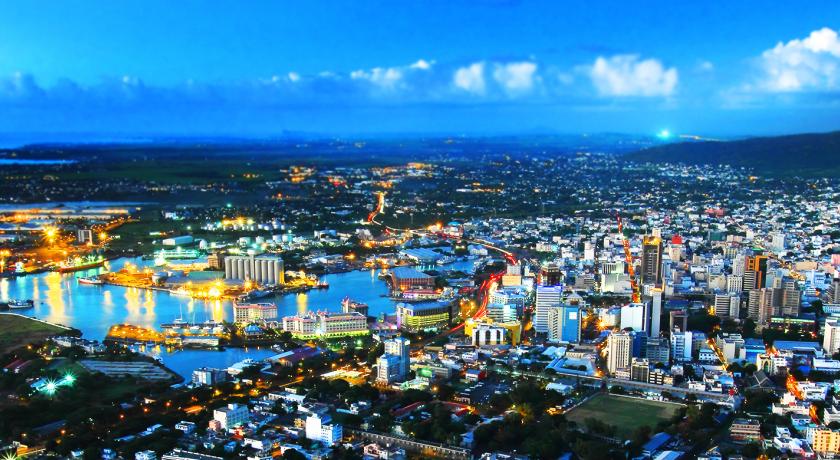Description
Mauritius island (Moris in creole), formerly the Isle of France, Mauritius in English, is the main island of Mauritius. It is located in the southwest of the Indiana ocean, in the heart of the archipelago of the Mascarenes, between la Reunion to the West, and the Rodrigues island to the East.
The capital of the Republic of Mauritius is Port-Louis, in the North-West of the island.
There's Mauritian creole, but also very well French and English
The Mauritius island, a glistening jewel in the turquoise waters of the Indian ocean, will fascinate you. The contrast of colors, cultures and flavors give such a charm to this island that the stage is set for an unforgettable holiday.
Here, you will have the opportunity to enjoy a luxury like no other, a level of sophistication far above other tropical destinations. Here, you will discover the true meaning of the word 'beauty,', a statement that will lead you back to the shores of Mauritius, again and again. It takes its name from the Dutch prince Maurice van Nassau...
Population
The population is about 1.2 million inhabitants and has several communities. The majority of the Mauritians are mixed with Indian origins (65.8%), black creole /Malagasy or Métis (27.7%). There is also a minority of mulattos, 'white of the Mauritius island' (2%), and sino-Mauritius (3%). The Muslim Mauritians (17%) are of Indian origin. This island has a less and less heterogeneous population, so some ethnic groups are more difficult to recognize.
Religion
In Mauritius, the majority of the religion is Hindu and Tamil (48%), Christian (30%) and Muslim (about 17%), and the remaining Buddhist 2%, but there is no main religion given the diversity of the population.
Culture
The main Mauritian dance and Music is the sega and the sega ravanne (sega typical of the old days).
Geography
The formation of the island is dated 7-15 million years ago. The island is of volcanic origin and still today, one can observe the traces of the great Caldera at the origin of its formation. The island no longer has an active volcano. There are however sleeping craters including the Trou aux Cerfs, which has become over the years one of the tourist attractions. It is located in the center of the island, in Curepipe. The island covers an area of 1 865 km2. It measures in its largest dimensions 65 km long and 45 km wide. The highest point is the peak of the little black River, which rises 828 meters. Its Coastal plains and a central plateau have allowed the extensive cultivation of sugar cane and tea for a long time. The coral reef which surrounds the island to protect the lagoons and beaches lined with coconut trees and filaos. Mauritius is also known for its beautiful landscapes and monuments.
History
The Portuguese were the first Europeans to visit the island, between 1500 and 1513. They called it Cirne, name of the ship of Captain Diogo Fernandes Pereira expedition.
However, the island remained uninhabited until the arrival of the first Dutch settlers, in 1598. Then, the island was colonized by the French in 1715 to 1810. Then came the English who occupied it by force before this possession was confirmed by the Treaty of Paris (1814). The British establishment lasted until independence in 1968.
Relating to the visa
The criteria for obtaining visa
- A valid passport whose expiry date is beyond the period of stay.
- A valid return or a return ticket to the country of origin or residence.
- A confirmed booking for the accommodation, for example, a reservation in a hotel. If the person travelling is received by a Mauritian citizen, he or she must present evidence including the name, address, occupation, the relationship, the national identity card number as well as the telephone number of the person.
- sufficient funds to cover living expenses ($ 100 per night).
- A promise not to engage in any for-profit activity.
The Procedures to follow
-
Completed and signed visa application forms are available on http://passport.govmu.org
- The following documents must be provided:
- Two recent passport photos;
- A photocopy of the traveler’s passport pages containing personal information or, if necessary, a photocopy of the residence permit or re-entry valid visa for three months.
- An average of five working days is required to process an application and to receive a visa. This provided that all relevant documents are submitted.
aThe majority of tourists do need a visa to enter Maurice. It can be obtained on arrival at the airport.
For more information, see the visa link from the Prime Minister’s office website.
Click here to see (i) the list of countries whose nationals are exempt from visa. (ii) the list of countries whose citizens are granted a visa on arrival; and (iii) the list of countries whose citizens require a visa before traveling to Mauritius
Your transport
Public transport
Public transport is provided by a number of bus companies that operate throughout the island. Express bus services run from Port Louis to the North and the South as well as to the major cities.
In urban areas, buses run from 5:30 am to 8 pm. However, in rural areas, the buses run from 6:30 am to 6:30 pm.
Public transport companies:
- National Transport Corporation (NTC)
- RHT HOLDING LTD.
- Triolet Bus Service Ltd.
- Mauritian public transport
Taxis
You can easily take a taxi anywhere in Mauritius. They are recognizable by their yellow signs on the roof. Their usual route is indicated on their doors. Taxis are available at the airport and in hotels. You can find them also in car parks with their intention in the cities and in the main towns.
Car/bicycle/scooter rental
Several companies and local tour operators offer services of renting of cars, bikes and scooters at reasonable prices. It is important to note that Mauritians drives on the left side of the road. You can easily visit different parts of the island by car or on a scooter.
https://fr.smarttravelapp.com/mod/search-car/#/searchcars
Helicopter services
If you want to make an unusual outing and enjoy an aerial view of the island of Mauritius, why not opt for helicopter services that are offered by Air Mauritius and the Mauritius police force?
The most important things for travelers
Customs formalities
Passengers over the age of 18 years can import the following duty free goods: 250 grams of tobacco (including cigars and cigarettes); a liter of spirits; two liters of wine or beer; a quarter of a liter of eau de toilette; and a perfume not exceeding 100 milliliters.
In case the plants and plant materials are introduced into Mauritius, including cuttings, flowers, bulbs, fruit, vegetables and seeds, an import permit must be obtained from the Department of Agriculture. It is forbidden to bring sugar cane in whole or in part, of the microorganisms of the soil and invertebrates.
All imported animals and all other agricultural products require a permit to import from the Department of Agriculture and a health certificate from the country of origin. Drug trafficking is punishable by criminal penalties. Firearms and ammunition require import permit and must be declared on arrival.
Currency and banks
The opening of the banks at the Sir Seewoosagur Ramgoolam international airport coincides with the arrival and departure of international flights, and you can change your money.
Banking hours in Mauritius
- From Monday to Thursday: 9: 00 am to 3: 00 pm
- Friday : 9 : 00 am to 5: 00 pm
- Banks are closed on Saturdays, Sundays and public holidays
Credit cards
Banks, hotels and most restaurants, shops and tourist shops accept credit cards. Otherwise, you will find gabiers throughout the island.
Medical care
Free health services are available in hospitals and public clinics everywhere on the island. Private clinics offers paid medical services.
Shopping hours
The shopping hours in Mauritius will from 9: 00 am to 7:30 pm (Monday to Saturday). Some stores open until noon on Thursday, Sunday and public holidays.
These aren't duty-free shops or shopping malls that is missing in Mauritius. Modern and comfortable, you will find a vast choice of products.
International Driving License
In Mauritius, driving is on the left of the road and drivers must give priority to traffic coming from your right. Visitors with a license issued by a competent authority in their country are allowed to drive during their stay in Mauritius.
Gratuity
A tip is always appreciated, but it is not mandatory.
Nudism
Nudism is strictly forbidden.
Personal security
- As the saying: prevention is better than cure!
- Valuables and money must be kept in the hotel safely.
- keep your vehicle parked securely.
- Park in a well-lit, secure place.
- Do not leave any valuables things visible inside the car.
- During shopping, especially in markets, fairs or on the sidewalk, make sure to close your hand bag, and don't let your wallet within the reach of pickpockets.
- Do not show that you have a lot of money on you.
- No need to carry your Passport with you, unless necessary.
- Do not leave your vehicle in an unattended location during your sightseeing tours in the forest or in remote places.
- Be sure you have emergency numbers on you.
Precautions
- You will find no poisonous reptile or other dangerous animals loose on the island. But nature being what it is, some animals can inflict painful bites. For example, pay attention to the wasps if you are allergic.
- See a pharmacist or a doctor in case of a dangerous bites, particularly in the head.
- Some fish and shellfish in Mauritian waters are known as being dangerous, especially the stonefish, sea urchins and the geographer cone. The ax of arms can also cut the flat of the foot. It is advisable to inquire about their presence before venturing into the sea. Be careful where you put your feet and, if in doubt, wear water shoes. Never hold in hand the geographer cone because its sting contains one of the deadliest poisons in the world.
- Avoid swimming, sailing or practice water-skiing or any other form of extreme sport under the influence of alcohol.
- Never let children swim or have fun without supervision.
- To avoid any risk of suffocation, don't eat any food or gum swimming, diving or playing in the water.
- If a strong current prevails, swim parallel to the shore. Once you are out of the current, swim toward the shore.
- If boating, always wear a lifejacket, even if the distance is short and no matter the size of the boat, or your ability to swim.
Road safety
• Have it in mind that Mauritians drive on the left side. For your safety, when crossing a road on foot, look first to the right.
• If you intend to drive, and if necessary, have your driving license approved at the appropriate office at the central barracks in Port Louis.
• Always keep to your when cycling, motorcycle or any other type of vehicle in Mauritius.
• At the roundabout, give way to traffic coming from the right, and take care to take it in the right direction.
• Be sure to always remove the ignition key when leaving your car.
• The seats belts are mandatory.
• Children less than 10 years are not allowed to occupy the front passenger seat.
• Parking vouchers must be well displayed when parking in a paying car park.
• You may be fined if you are caught speaking on phone while driving.
• Drink or drive, you choose, but not both at the same time!
Recommandation for Traveler
Because of the Ebola outbreak in West Africa and the Democratic Republic of the Congo, the public is strongly advised to avoid visiting the following six countries: Guinea, Liberia, Sierra Leone, Nigeria, Senegal and the Democratic Republic of the Congo, unless absolutely necessary. Anyone visiting the countries mentioned above and then coming to Mauritius will be subject to a test determining their risk to be contaminated and a quarantine as a result. Those who must go to these countries are invited to take the following precautionary measures:
• Have a good personal hygiene; wash your hands with SOAP as frequently as possible
• Avoid contact with sick people
• Avoid hugging anyone or to shake hands
• Do not handle anything that may have come in contact with blood or body fluids of an infected person
• Avoid funerals and burials that require the manipulation of the body of a person who died of the Ebola virus
• Avoid crowded places and social gatherings
• Avoid hospitals where patients are treated for the Ebola virus
• Avoid contact with bats and primates. not human or with their blood and their body fluids, or to consume meat raw prepared from these animals.
You should consult a doctor in case you have a fever accompanied by one or more of these symptoms: weakness, headache, muscle aches, sore throat, vomiting and diarrhea.
source https://fr.wikipedia.org/wiki/%C3%8Ele_Maurice and https://www.tourism-mauritius.mu/fr/sejour/experience-mauricienne.html
Address
Île Maurice
Maurice
Lat: -20.348403931 - Lng: 57.552150726


